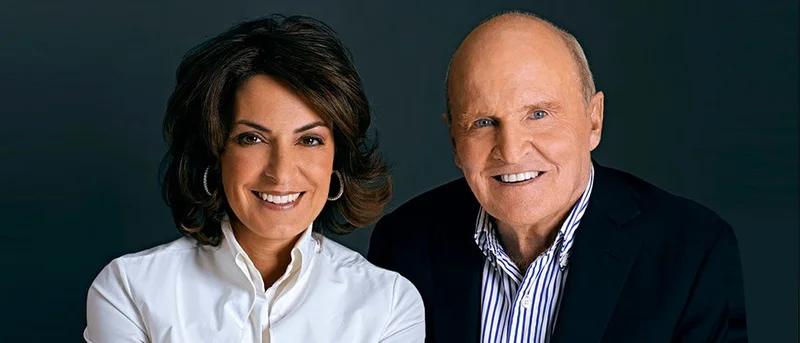Let’s get one thing straight. When a business journalist from NYU—the heart of the meritocratic machine—declares an entire generation “unemployable,” my first instinct is to laugh. A headline like Suzy Welch worries that Gen Z is ‘unemployable’—and some leaders are intervening to teach them basic life skills gets clicks, sells books, and makes boomers feel smugly superior at their country club lunches. But then you dig in, and the laughter dies in your throat. Because the details aren’t just absurd; they’re a five-alarm fire scorching the foundations of the modern workplace.
We’re not talking about kids who can’t code or balance a spreadsheet. We’re talking about young adults who, according to the people trying to hire them, can’t manage a calendar. Who don’t understand that you can’t just walk out of a meeting because you have a lunch date. Who are so terrified of face-to-face rejection they’d rather stare into their phone than say “thank you” to the person handing them their burrito.
This isn’t a skills gap. This is a reality gap.
And now, corporate America—the same brilliant institution that gave us open-plan offices and mandatory fun—has decided it needs to step in and play parent. It’s a mess. No, “mess” doesn’t cover it—it’s a societal indictment that’s been outsourced to middle managers.
The Corporate Kindergarten
You have to feel for someone like Rebecca Adams, the chief people officer at a billion-dollar AI startup. She’s got two Gen Z kids of her own, so she’s living this nightmare in stereo. She tells Fortune about interns who just… leave. In the middle of a meeting. Because they have another one. Or because a senior leader is treating them to lunch, and they figure that’s more important than whatever work they were doing.
Her company, Cohesity, is now training its managers on how to deal with this generation and, simultaneously, teaching its youngest hires “basic things” like how to accept a meeting request. Let that sink in. A company on the cutting edge of artificial intelligence is holding remedial classes on Google Calendar. It’s like buying a Formula 1 car and discovering you have to teach the driver how to use a key.
Adams recounts the story of a star intern who, after getting a full-time offer, just casually said, “You know what? I think I just want to take a year off and travel.” She was stunned. Offcourse, her maternal instinct was to tell him to take the job. But this is the new reality. These kids have been told their entire lives to follow their passion and prioritize their mental health, and now we’re shocked when they do exactly that?

This isn’t just about being “picky.” It’s a fundamental disconnect from the old bargain: you suffer through a few years of grunt work for the promise of stability later. They’ve seen that promise evaporate for their parents and older siblings, so why would they play a rigged game? The question is, can you really teach someone the rules when they don't even want to be in the stadium?
Fear and Loathing on Campus
If you think the problem starts on day one of the job, you’re not paying attention. It starts way earlier, and Liz Feld, CEO of the nonprofit Radical Hope, is on the front lines of it. Her organization is now on 75 college campuses trying to teach young adults the skills she says “we all got growing up at the kitchen table.” Things like empathy, communication, and conflict resolution.
Feld’s stories are somehow even more terrifying than the corporate ones. She talks about students who are literally afraid to ask a friend to grab dinner because a “no” is perceived as a catastrophic personal failure. They’ve been so insulated by technology and overbearing parents that a simple, face-to-face interaction carries the emotional weight of a final exam. The “Gen Z stare” isn’t malice; it’s a system error. A blue screen of social anxiety.
And the parents… my god, the parents. Feld confirms the urban legend is true: parents are showing up to job interviews. For their children. Who are graduating from places like Dartmouth. She hears about parents telling their 22-year-old kids, “You can’t do this on your own,” which is the most soul-crushing thing you could possibly say to someone on the verge of adulthood.
We’re not just talking about helicopter parents anymore. This is something else entirely. It’s like they’ve been acting as their children’s real-world avatars for two decades, handling every difficult interaction, clearing every obstacle, and making every decision. Now the kids have been pushed out into the world without the source code for being a person. And the companies who need them to function are left to debug the mess.
So We're Babysitting Adults Now
Let's be brutally honest. These corporate training programs and campus workshops are, at best, a desperate stopgap. They’re trying to patch a generation’s operating system with a few lines of code, hoping it doesn’t crash the whole network. But you can’t teach two decades of lived experience in a two-hour seminar. You can’t undo the profound psychological damage of an anxiety-fueled, smartphone-mediated upbringing with a few role-playing exercises.
This isn’t a Gen Z problem. They’re just the symptom. This is a parenting problem, a cultural problem, and a technological problem all rolled into one. We raised a generation to fear failure, shielded them from every scrape, and then handed them a device that feeds them a constant stream of curated perfection and social anxiety.
Now we expect them to be resilient, communicative, and ready to grind? Give me a break. The real issue isn’t that Gen Z is unemployable. It’s that we’ve created a world that has failed to prepare them for the simple, messy, and often disappointing reality of being a functional adult. And no amount of corporate hand-holding is going to fix that.
